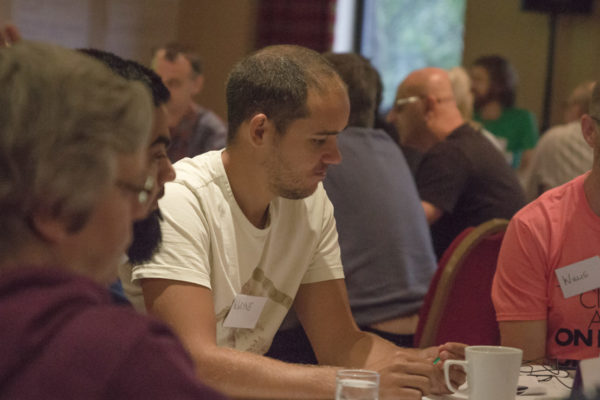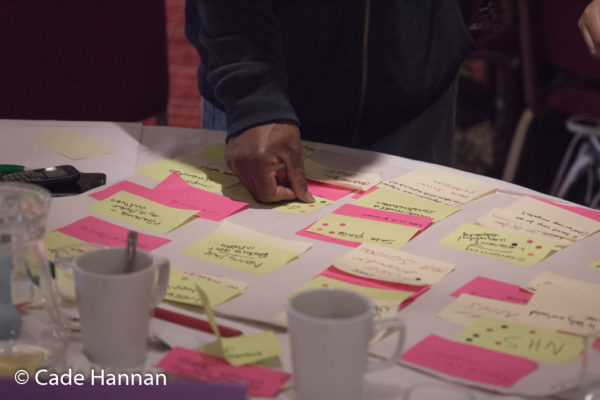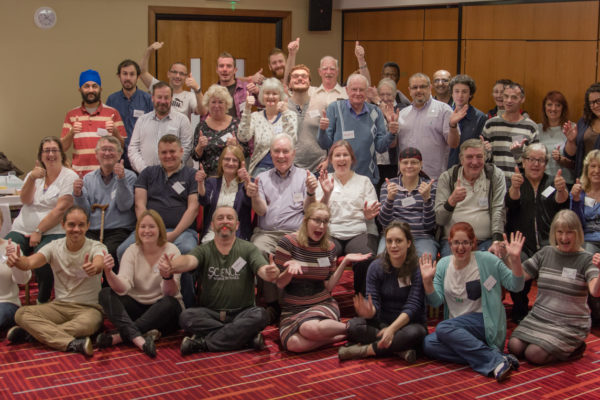The Citizens’ Assembly on Brexit, held over two weekends in the autumn, brought together a representative sample of the population to discuss the form Brexit should take with respect to immigration and trade. But, as an unofficial body in contrast to past and present assemblies in Canada, the Netherlands and Ireland, should it really be classed as a proper citizens’ assembly? Graham Smith argues that it meets the most pertinent criteria and therefore should enter the small, but select, pantheon of genuine citizens’ assemblies.
 What counts as a ‘citizens’ assembly’? The bar seems to have been set pretty high by the original assemblies in British Columbia (2003), Ontario (2006/7) and the Netherlands (2006), in which 104 to 160 randomly selected citizens met for between 10 and 12 weekends to learn, deliberate and make recommendations on whether new electoral systems ought to be introduced. The current Irish Citizens’ Assembly is running over 16 months, with 99 citizens coming together for 11 weekends working on a range of issues, including abortion, climate change and fixed-term parliaments. In all cases, the assemblies have been sponsored by political authorities.
What counts as a ‘citizens’ assembly’? The bar seems to have been set pretty high by the original assemblies in British Columbia (2003), Ontario (2006/7) and the Netherlands (2006), in which 104 to 160 randomly selected citizens met for between 10 and 12 weekends to learn, deliberate and make recommendations on whether new electoral systems ought to be introduced. The current Irish Citizens’ Assembly is running over 16 months, with 99 citizens coming together for 11 weekends working on a range of issues, including abortion, climate change and fixed-term parliaments. In all cases, the assemblies have been sponsored by political authorities.
The Citizens’ Assembly on Brexit (CAB) brought 50 randomly selected citizens together over two weekends in September 2017 to learn, deliberate and make recommendations about trade and immigration policy post-Brexit. But is it too small, too short and too far removed from official decision making processes to be thought of as a ‘proper’ citizens’ assembly?
Are there hard and fast rules here on numbers, length of service and political sponsorship? Are these the characteristics that define a citizens’ assembly as a particular form of deliberative mini-public? It is critical to have standards for different forms of engagement to ensure quality, although it is positive for democratic experimentation and innovation that no one has attempted yet to copyright ‘citizens’ assemblies’ as James Fishkin has done for deliberative polls.
Let us take the relationship with official decision making first. One of the features of previous citizens’ assemblies – and many other deliberative mini-publics – is that their charge is set by those with political authority. This no doubt limits what citizens’ assemblies are asked to work on, but couples them closely to the formal political process. While the Irish Citizens’ Assembly has shown that they can work on the most controversial topics – in this case abortion – this was an issue where the government was glad to pass the buck to a group of citizens. In the UK, this is not the case. The government has not developed a structured approach to engaging citizens on the question of what Brexit should look like. Does that mean a citizens’ assembly should not be organised where there is no explicit sponsorship by political authorities? Surely not. Surely a citizens’ assembly can be used as an intervention by those outside circles of political power in an attempt to change the terms of debate and bring citizens’ voices to bear.
So, what about size? Does a body need to have 99 members or over to count as a citizens’ assembly? Rather than worrying about an arbitrary number, more significant is whether the assembly is diverse, ensuring that the body closely resembles the characteristics of the broader population. Here the CAB wins out against all comers. None of the previous citizens’ assemblies have managed to achieve a sample so close to the socio-demographic and attitudinal (towards Brexit in this case) character of the population.
So then, is length of time the critical factor? After all, previous assemblies have run over more than 10 weekends. Again, those defending an arbitrary time period for a citizens’ assembly need to be careful. The Irish Citizens’ Assembly is dealing with at least two issues over one weekend each – and its cousin, the Convention on the Constitution (which mixed randomly selected citizens with appointed politicians) dealt with more than one issue on a single weekend. What is critical is that citizens have enough time to learn about the issues at stake, deliberate with one another and come to recommendations. The number of weekends is not important; rather what matters is ensuring that what members are tasked to do is manageable in the allotted time. If the CAB is out of the party, so is much of the work of the Irish Citizens’ Assembly.
If it is not sponsorship, size or time that defines a citizens’ assembly, then what does matter? The following characteristics are arguably most pertinent:
- Diverse membership. The CAB scores highly.
- Non-partisanship in organisation. The CAB was organised by an independent consortium of universities and civil society organisations and the charge, briefing materials and weekend schedules were reviewed by an advisory board made up of Leave and Remain supporters and experts in presenting controversial material in a balanced manner.
- Adequate time for learning, deliberation and coming to recommendations. In light of the two-weekend structure, the CAB focused on very specific issues relating to trade and immigration policy post-Brexit that could be dealt with in that time.
- High-quality facilitation. Working in partnership with Involve meant that the CAB was more professionally facilitated than any previous citizens’ assembly.
- Political salience. The CAB addressed arguably the most significant issue on the current political agenda – indeed perhaps the most important set of decisions facing the country in decades.
On all these factors, the CAB scores highly. It deserves to enter, with its head held high, into the small, but select, pantheon of citizens’ assemblies. Or, alternatively, we need to be less fixated with arguing over definitions and get on with creating more opportunities for meaningful participation and deliberation.
You can download the Citizens’ Assembly on Brexit’s summary report at this link. The final Report will be published in mid-December.
About the author
Graham Smith is Professor of Politics and Director of the Centre for the Study of Democracy at the University of Westminster. He is a co-investigator of the Citizens’ Assembly on Brexit project.



